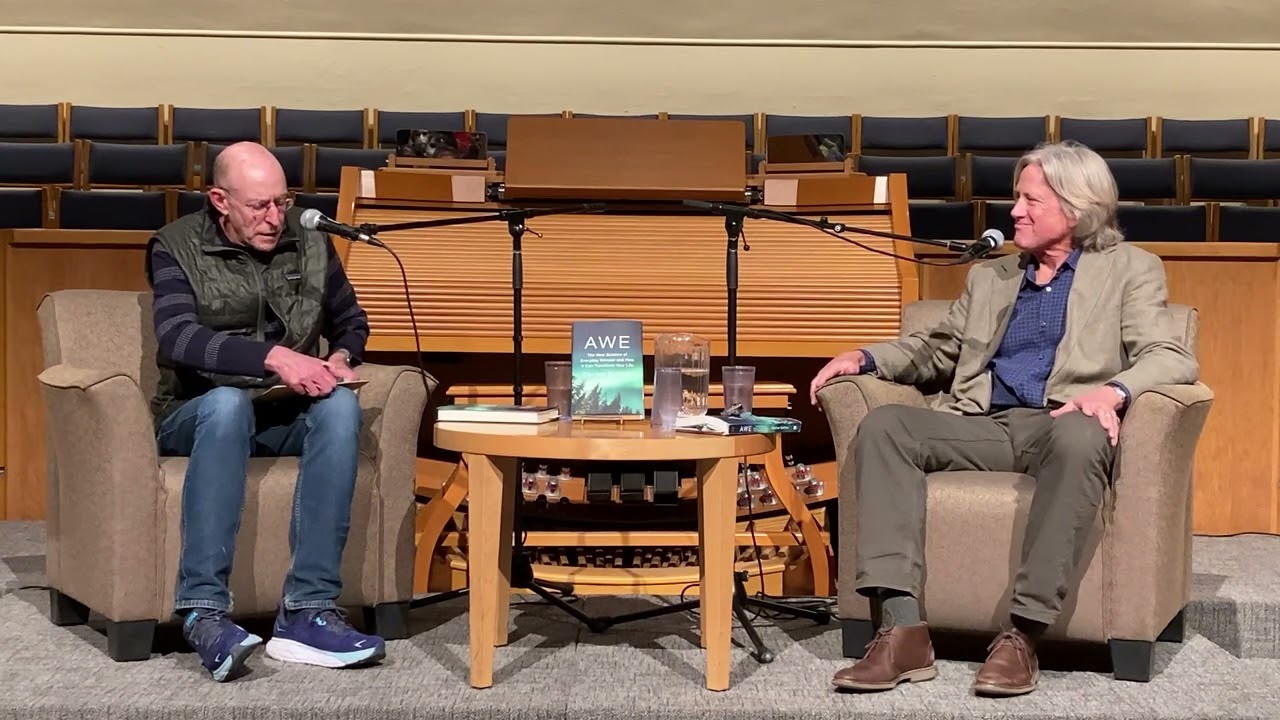Feeling awe is an antidote to our stressed-out, highly competitive times. Humans have survived thanks to our capacities to cooperate, form communities, and create culture that strengthens our sense of shared identity—actions sparked and spurred by awe.
On Fiat Lux Redux, Tuesday, December 24 at 9AM, UC Berkeley psychology professor and faculty director of the UC Berkeley Greater Good Science Center, Dacher Keltner, speaks with author and co-founder of the UC Berkeley Center for the Science of Psychedelics, Michael Pollan about Keltner’s new book, Awe: The New Science of Everyday Wonder and How It Can Transform Your Life.
Dacher Keltner is a renowned expert in the biological and evolutionary origins of human emotion. In his book he presents a radical investigation and deeply personal inquiry into the elusive emotion of AWE and presents new research into how awe transforms our brains and bodies. He has written 200+ scientific publications and six books, including Born to Be Good, The Compassionate Instinct, and The Power Paradox and has written for The New York Times, Slate, and other national publications. He has consulted extensively for Google, Apple, and Pinterest, on issues related to emotion and well-being and was the scientific advisor behind Pixar’s Inside Out.
Michael Pollan is the author of eight books, among them How to Change Your Mind; Cooked; Food Rules; In Defense of Food; The Omnivore’s Dilemma; and The Botany of Desire. His latest book, How to Change Your Mind: What the New Science of Psychedelics Teaches Us About Consciousness, Dying, Addiction, Depression, and Transcendence, tracks the promises, perils, history, culture, his personal experience with, and latest scientific research into psychedelics and their potential to relieve several kinds of mental suffering, including depression, anxiety, and addiction.
Fiat Lux Redux presents previously aired lectures, conversations, and podcasts originating on the campus of UC Berkeley every other Tuesday from 9am to 9:30am. These often-lengthy original programs have been edited to a 30-minute format by experienced KALX producers. The show’s name, Latin for “Let there be light”, is a reference to the University of California’s motto, which is also Fiat Lux. The show’s goal is to provide listeners with a window into the intellectual and cultural life of UC Berkeley and to showcase the wide range of subjects and diversity of thought and ideas that are present at UC Berkeley.
If you have questions or comments about Fiat Lux Redux, contact Lisa Katovich at lisa.katovich@gmail.com.


